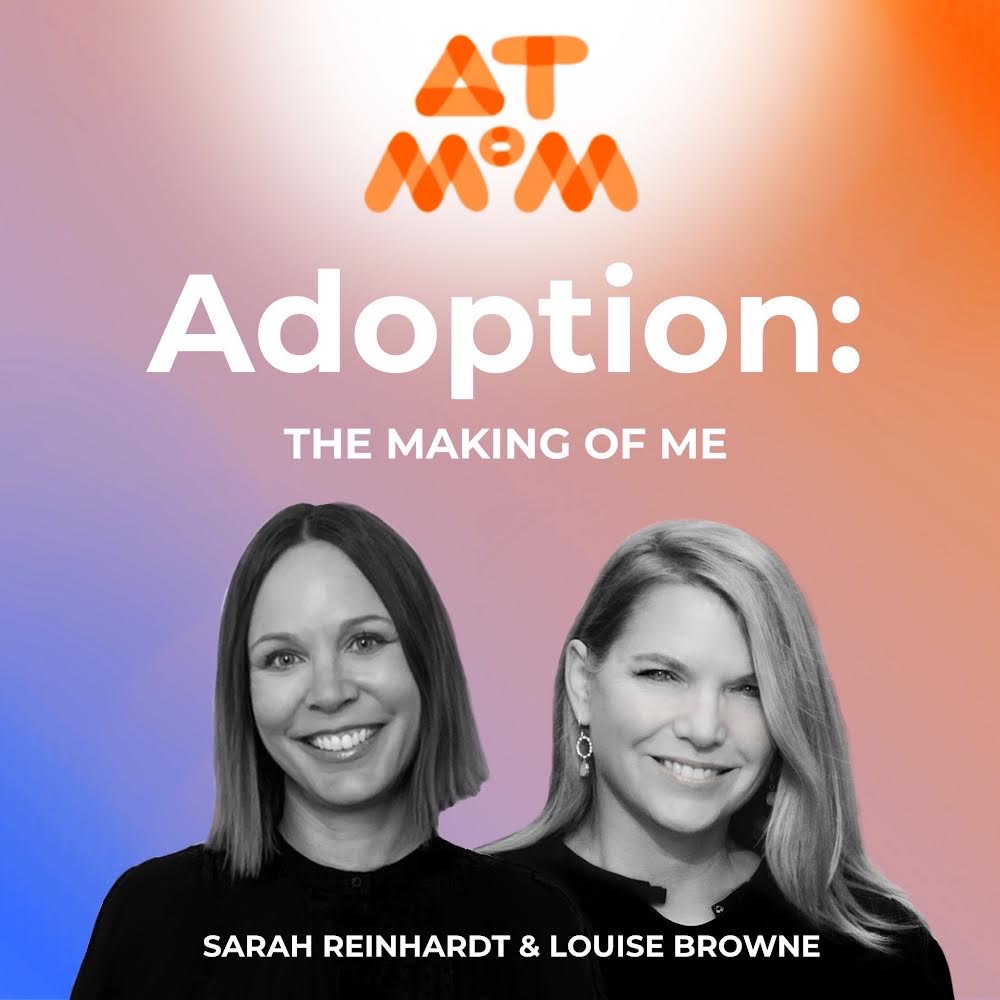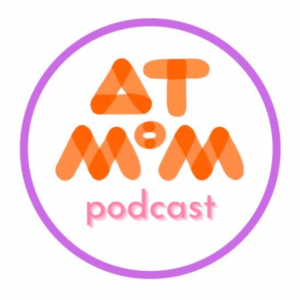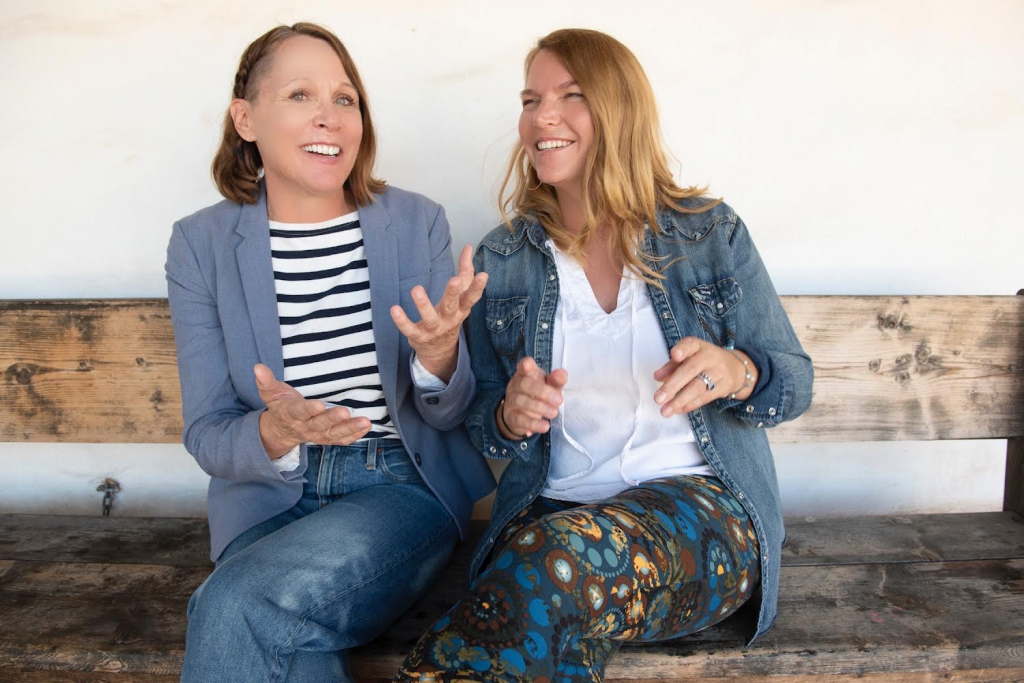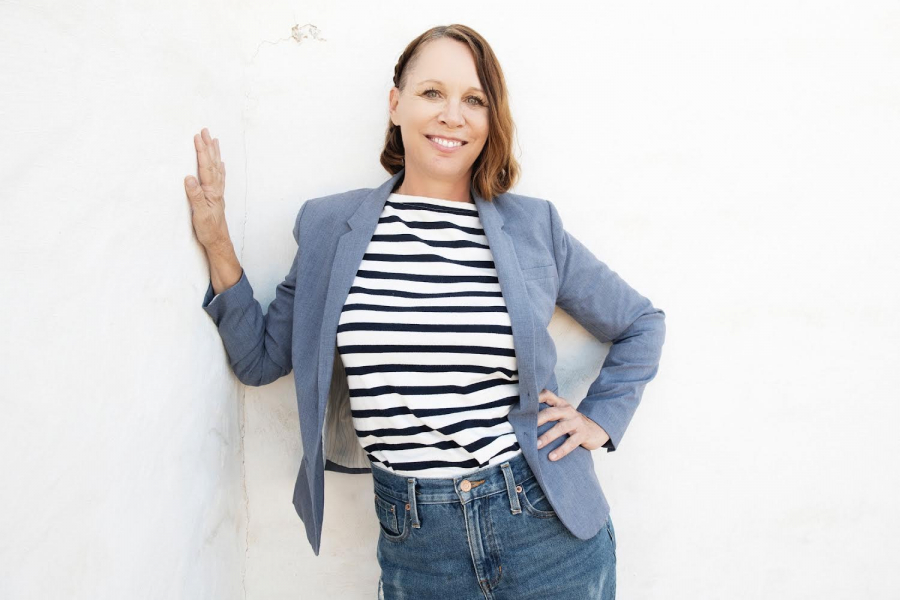Sarah Reinhardt Interview
As an absolute podcast junkie, Adoption: The Making of Me has been a favorite. I originally found this podcast when searching for more content about The Primal Wound By Nancy Verrier. In the first season, Sarah read and discussed The Primal Wound. From the first episode, I was hooked. I have listened to, and enjoyed every single episode. As you can imagine, I was thrilled when the hosts responded to my request to interview them. I am also thrilled to be a guest on their podcast soon!

Meet the Hosts
First, we have Sarah Reinhardt, an adoptee and co-host of Adoption: The Making of Me.

Tell me about yourself. Where are you are from and what is your role in the adoption triad and community?
Hi! I was born in St. Louis after my birth mother’s water broke on the ascent out of JFK; she, too, was adopted and was on the flight with her adoptive mother. When I was born, her mother told her that in no uncertain terms was she keeping me. I was taken from her and she wasn’t able to even hold me.
So, I am an adoptee—that’s my role in the triad. I was raised in Jefferson City, MO but moved to Miami when I was 15 (and from there, NYC, LA, Austin, and Kansas City). My adoptive parents divorced when I was 7, and my mom had moved to Miami with her second husband.
I have a dog named Woody. He is an adorable 5-year-old brindle rescue (Beagle/ Catahoula mix…I think?).
I also have a [26-year-old] son. He’s my only child.
My hobbies are hiking and live music and happy hour (alcohol-free!), reading books, and going to movies. And weekend trips!
I am a writer, podcaster (Adoption: The Making of Me) and I work in Public Media in Kansas City, where I moved in 2020 from Los Angeles.
Tell me about your adoptive family.
My adoptive family is Midwestern, from Missouri—stoic and reliable and kind-hearted. After I was adopted, they adopted my brother 2 ½ years later, and when he was 5 months old, they discovered they were pregnant with twin boys. The culture was… Midwestern. I’m not sure how else to describe it. We lived in a nice neighborhood with a yard, trees, etc. Both sets of grandparents were nearby. When I was 7, my parents divorced and we stayed with our father. That was a difficult situation and later when I looked back, I recognized the double relinquishment.
Tell me why your adoptive family chose adoption & how they ended up adopting you.
A: My adoptive parents had suffered through a painful miscarriage and assumed they were infertile, so they signed up with Lutheran Children’s Services. I don’t think it took very long for them before I came into their lives.
TW: This section has mention of self-harm and PTSD.
Tell me about your biological family.
A: My biological mother was also adopted (from NYC), and she and my father met in her first year of college. They dated and spent the holidays together and that’s when she got pregnant with me. They broke up before she knew she was pregnant—honestly, even though she told me she knew she was pregnant, I’ve often wondered if she actually did know. She only gained 7 pounds, never had a prenatal visit, and got onto a plane with her adoptive mother. She either didn’t know or was just naive about it. At any rate, my father never knew, and shortly after they broke up, he dropped out of University to help with things at home. She was never able to track him down to tell him, because he ended up getting drafted to Vietnam—ultimately a terrible tragedy for him and his family, and me, as he suffered from PTSD and years later, [ended his own life].
My birth mother went on to have four more children after me (she would have had one more had it not been for a car accident in which she lost the baby). She then had another son, and several years after that, another son (both different fathers than each other and me), and then two daughters with the man who would become her husband. My birth father had three children—a boy and a girl with his first wife, and then, after a divorce, a daughter. He never knew about me. I found his family in 2010 and have been in touch with aunts, cousins, and siblings ever since.
I found my birth mother and siblings in 1998, after my son was born and have been in reunion ever since. One of my brothers passed in 2000, and my mother passed in 2009 from liver cancer. In 2015, after an Ancestry DNA test, I found my birth mother’s biological mother’s family and have been in touch with them ever since. Just this past year, with the help of a Search Angel, I was able to find out about my birth mother’s biological father—he’d been a physicist in New York where he met my bio grandmother. No one in that family is aware of her birth or mine.
Tell me about why your biological family settled on placing you for adoption.
My birth mother did not decide that. It was decided for her in the punishing and unforgiving Baby Scoop Era. She desperately wanted to keep me, but her adoptive mother forced her to give me up without even holding me; she was only 18.
How old were you when you were adopted? Were you immediately with your adoptive family?
I was a baby and I went to foster care for the first 5-6 weeks of my life.
When and how did you find out you were adopted?
I can’t remember when I found out, I just always knew, somehow. I didn’t feel any shame from it as a child, although a boy in elementary school made fun of me for being adopted, so I punched him! But my adoptive parents were always open about it and answered as best as they could when I had questions.
How was your childhood?
The first 7 years were a very happy childhood, but then my parents divorced and my mom left and it was hard and very lonely. My dad remarried when I was 12, and that was not a great situation. I ended up running away at 15 and moving to Miami to be with my mom.
What is your favorite childhood memory?
Wow, I am coming up blank. I have blocked out a significant portion of my childhood years. I have a good memory of my dad and me planting a tree in our front yard. I recently drove down that street when I was visiting my dad, and that tree is huge now! It provides so much shade for the yard. There’s got to be a metaphor in there somewhere! I also have happy memories of my mom teaching me piano and singing to me.
Did you ever consider adoption to grow your family?
No, never. It never occurred to me. I 100% knew I wanted a child —one child— a biological child. I wanted to have a blood connection in the world. I had a hard time really connecting to people, trusting people, letting my guard down. I innately knew that having a baby with whom I was biologically connected might be the only way I’d ever be able to feel love. I realize that’s not super healthy, but it was what it was. I also knew, even though no therapist, no friend, no adult, ever acknowledged it—but I knew adoption was trauma and that I didn’t want to contribute to that by adopting.
What are some experiences with adoption you have had in your life, other than your own?
I have quite a few friends who were adopted, oddly enough. Or maybe not so odd —the Baby Scoop Era was quite prolific!
And, I have a podcast where I speak to adoptees on a weekly basis. So my experience has now become vast!
What was the hardest part about growing up adopted? And what is the hardest part about it now that you are an adult?
Growing up, it’s hard to daily distinguish between what was adoption and what was divorce and the loss of my second mother.
Now, as an adult, what’s hard about it is that because adoption was ONLY celebrated in the mainstream narrative, there was no attention brought to the actual trauma of it all.
So I had all these issues—abandonment, acting out as a teenager, attachment problems—but no one ever got me help or discussed that adoption played a part. So now I look back and think about all the people I discarded, all the situations in which life could have been made so much better with the tools of understanding myself.
Don’t get me wrong—I knew something was off, and I even paid lip service to abandonment issues—but not one therapist ever acknowledged that such a thing as relinquishment trauma existed. It wasn’t taught to them, in essence.
A whole generation of adoptees really missed out on being able to pinpoint why we felt the way we felt, thereby being able to tackle the issues head on.
What is the best part about being adopted?
I think the best part of being adopted is how adaptable I am to any circumstance that I’m faced with. When you think about it, we’ve been through one of the worst things that could happen to a human any mammal, really—being separated against our will from our mothers—so how can we not learn to adapt to any situation that comes our way?
Also, now, I have a podcast and get to speak to adoptees and hear their stories and know that there are so many others out there who feel this way.
And I do want to say that I love my adopted family and even though I felt like a fish out of water growing up in my small Midwestern town, I am grateful for the values they instilled in me. They are always here for me.
If you could tell hopeful adoptive parents one piece of advice from an adoptee’s perspective, what would it be?
Read every single book you can find that adoptees have written about their experience. Hear them with an open mind and open heart. Read American Baby by Gabrielle Glaser to understand [adoptee] history. Talk to your kids. Don’t take anything personally. Get your ego out of the way. This baby was not a blank slate. They have a genetic history, an entire ancestral story that has nothing to do with you. Honor that. Give them the space to be hurt, angry, scared, lonely, and lost. It’s a natural way to be when you’ve lost your family. Hear them and comfort them. You can’t change that piece of it so you just have to live with it.
If you could tell expectant parents considering placing a baby for adoption from an adoptee’s perspective, what would it be?
I don’t have an answer for this except to say that if you can keep your baby, your child, that is the best thing for that child, hands down. If you are not able to care for your child, a family member is the second-best choice.
If you could tell a fellow adoptee one piece of advice, what would it be?
Find ways to heal. Healthy ways. Talk to other adoptees. Find an adoption-trained therapist (they do exist, now!). Read all the books. Know that you’re not alone. We’re here for you.
Tell me about everything you are doing in the adoption community.
We started the podcast in May of 2021 and we’re going stronger than ever! Our goal is to give a platform for adoptees to tell their storie—it’s pretty simple—and to keep going as long as we can. There are a lot of adoptees out there, so a lot of stories can be told and heard.
It was a great honor to interview Sarah for Adoption.com. I am always so fascinated to hear different adoptee stories from different eras—from my grandma’s story and her 1930s adoption to bits and pieces of my own story (a 1990s adoption), to Sarah’s story today. We are all so similar, but so unique.
If you haven’t listened to Adoption: the Making of Me, I would highly recommend it. Sarah and her co-host, Louise do an excellent job of interviewing fellow adoptees. They are kind, down-to-earth, empathetic, and understanding as they interview adoptees.










